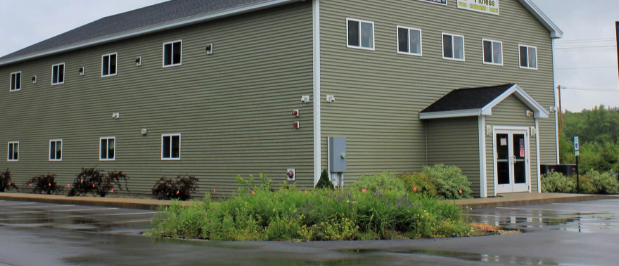Any reporter knows that every news story has a who, what, where, when and why. It's known as the 5Ws.
So why did a story in a local news outlet talk about a homeless man who died, interview the man's sister who had seen him as recently as two weeks prior to his death and not ask why her brother was homeless and living in a tent?
Was he evicted from his apartment?
If you're a journalist you have to be curious.
We wanted some answers on the cause of death of Bobby Hensley Jr, so we contacted Dover Police Lt. Scott Pettengill, who said Hensley had been living in the tent on Dover Moose property for about two weeks before his death. Pettengill said the people at the Moose had no problem with Hensley being there and police let him be. He was found deceased on Nov. 4. It was classified as an unattended death. No foul play.
We asked Pettengill if there was any drug paraphernalia near or inside his tent and he replied he couldn't release that information, which seemed curious to us because just a few months ago Dover Police were as a matter of policy sending out press releases detailing Dover deaths in which drug overdoses were suspected although not yet confirmed by a toxicology report.
We are in no way implying that drugs were the cause of Hensley's death, but why on earth would police not say whether drug paraphernalia like syringes or other substances might have been at the scene? Pettengill said the policy had changed and that press releases that had been formerly sent in drug-suspected deaths were no longer being sent per the chief's orders.
We thought the letters were instructive to publicizing the dangers of using drugs like fentanyl, a synthetic opiate hundreds of times more deadly than heroin. So why would you keep fatal drug overdoses a secret? Just curious.
There's no question that there is sadness in this man's death, but we hope the Rochester City Council will be clear-eyed tonight when they discuss funding a full-time November to April shelter at 30 Willand Drive at a total cost of $276,000.
Don't let a couple of stories in another news outlet goad you into a guilty conscience.
We've talked to many homeless people over the course of several years and most of them will stay in their tents until bitter cold forces them into shelters.
During the first year when Rochester had a cold weather shelter at the James W. Foley Memorial Community Center, we spoke with a man who stayed warm with several tarps hung from trees and a propane heater and said he was perfectly comfortable until he woke up one morning and found his boots were frozen solid. It was only then he went to the shelter.
Over the summer we spoke to several homeless folk while we were doing a feature on the popular Manna meals that are organized by Cheryl Huckins of Barrington.
One young man and his girlfriend spoke openly about how they love the freedom of living in the woods and have established lasting friendships with many other homeless they have encountered.
Welfare Director Todd Marsh told The Rochester Voice he has never turned away someone looking for shelter, but oftentimes when they can't get a voucher for a local motel room, they have turned him down and walked out mad.
Another pair of homeless people we met a while back, people that finally got an apartment with help from Marsh, told The Rochester Voice a lot of the homeless spend their disability checks on drugs and therefore have nothing left to pay someone rent.
We believe an extreme weather shelter makes sense. It's worked the past few years and there is no need to open it up 7 days a week through April 1.
Every candidate for public office in Rochester agreed at the Candidates Night in October that it is not a city problem, it's a state problem, a federal problem, so why are Rochester, Somersworth and Dover taking it on by themselves.
Part of the money is coming from NH Emergency Rental Assistance Program, which provides financial assistance for New Hampshire renters who cannot pay their rent and utilities during the pandemic.
Is someone trying to tell us there was no homelessness prior to COVID?
Plus the effort to fund this full-time shelter estimates about 30 clients a night. That's $9,200 per person. And what's even more heinous is that staffing expenses account for $172,000 of the total $276,000 cost of the program. That's almost two thirds of the cost!
Let's have a kitchen table discussion that thinks this through, not a feel good, spend some money knee-jerk reaction that makes no sense.
- HT














